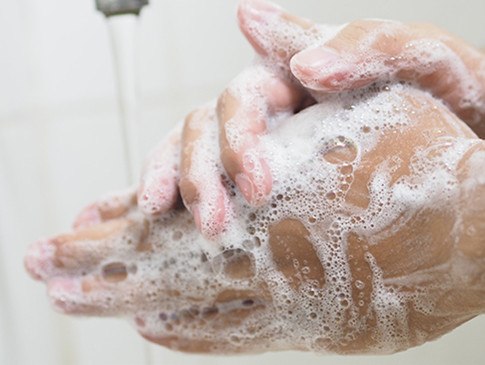
The Food Safety Alert Consultation consists of expert groups in microbiological and chemical food safety who gather and jointly interpret emerging food safety risk signals. They recently reported on the activities and signals in 2022.
The aim of the platform is to timely identify, interpret, and if necessary, report emerging food safety risks to the Ministries of Health, Welfare and Sport (VWS) and Agriculture, Nature and Food Quality (LNV), and the Netherlands Food and Consumer Product Safety Authority (NVWA).
Highlighted risks:
The FSA (UK) observed a decline in hand hygiene compliance. All hand hygiene rules (e.g., duration, use of soap, timing of hand washing) were followed less rigorously. Notably, the percentage of respondents washing hands after using the toilet also dropped. The issue of hand washing should be highlighted in businesses, but it might not always be the case with consumers. The FSA data could be biased by the hand washing advice given during the coronavirus pandemic, and no comparison was made with the pre-pandemic situation.
Foodwatch conducted a study on mineral oils in stock cubes sold in various European countries and found relatively high levels of MOAH. MOAH was also found in stock available in the Dutch market. Following this report, these stock cubes were removed from the market in France. However, this has not happened in the Netherlands. The presence of MOAH in stock cubes will be included in the 2023 annual plan of WOT Food Safety Enforcement; analyses will be conducted by WFSR. The signal has thus been adequately addressed and closed.
In line with the circular economy, there are increasing initiatives to reuse plant-based 'residues' in the food chain. There are various examples of plant parts previously unused or scarcely used, like peels and seeds, now employed in (large-scale) food production. In some cases, specific substances are concentrated or extracted from the product. Currently, the safety of plant-based residues is unknown (both by manufacturers and legal frameworks). Serious risk (possibly) present, but not acute: report to CO for follow-up.
In the spirit of sustainability, plant materials (e.g., banana leaves, palm leaves) are increasingly used to make disposable cutlery and dishes. It is unclear if residues from pesticides are present, or if adhesives and/or mold inhibitors are used in their production. Currently, there is no specific legislation for natural materials (such as leaves) as food contact materials. Serious risk (possibly) present, but the risk is not immediate, according to the food safety alert consultation: report to CO for follow-up.
Additives with a technological purpose, such as preservation, are added to food products. These additives must be listed on the label in a specific manner according to the law, e.g., 'E250 sodium nitrite'. To avoid such labeling, a market for 'clean label' ingredients has emerged. These products serve the same technological purpose but are not visible on the label. In some cases, clean label ingredients use less well-characterized raw materials, such as fermentation extracts that might unintentionally contain enzymes leading to the formation of harmful biogenic amines. With increased surveillance on correct labeling of additives, there is an expectation of decreased use of less well-characterized clean label products.
The Food Safety Alert Consultation (SO-V) was established by the Ministries of Health, Welfare and Sport (VWS) and Agriculture, Nature and Food Quality (LNV) following a report by the Safety Research Council on emerging food safety risks (June 2019). It started in 2020.
The platform comprises the Food Safety Alert Consultation for Microbiology (SO-VM) and the Food Safety Alert Consultation for Chemistry (SO-VC). Participants include experts from the NVWA, Wageningen Food Safety Research (WFSR), the Board for the Authorization of Plant Protection Products and Biocides (Ctgb, only SO-VC), the Office of Veterinary Medicines of the Medicines Evaluation Board (CBG-BD, only SO-VC), and the National Institute for Public Health and the Environment (RIVM). From 2021, industry experts also participate in the consultations. The experts collect signals and contribute them to SO-VM or SO-VC.
In 2022, both SO-VM and SO-VC had four meetings where signals were introduced and interpreted by the participating experts. In total, SO-VM assessed 22 new signals. SO-VC interpreted 43 signals (including 9 ongoing signals from previous years).
Photo ©Sucharas Wongpeth/Shutterstock.com
Source: vakblad Voedingsindustrie 2023